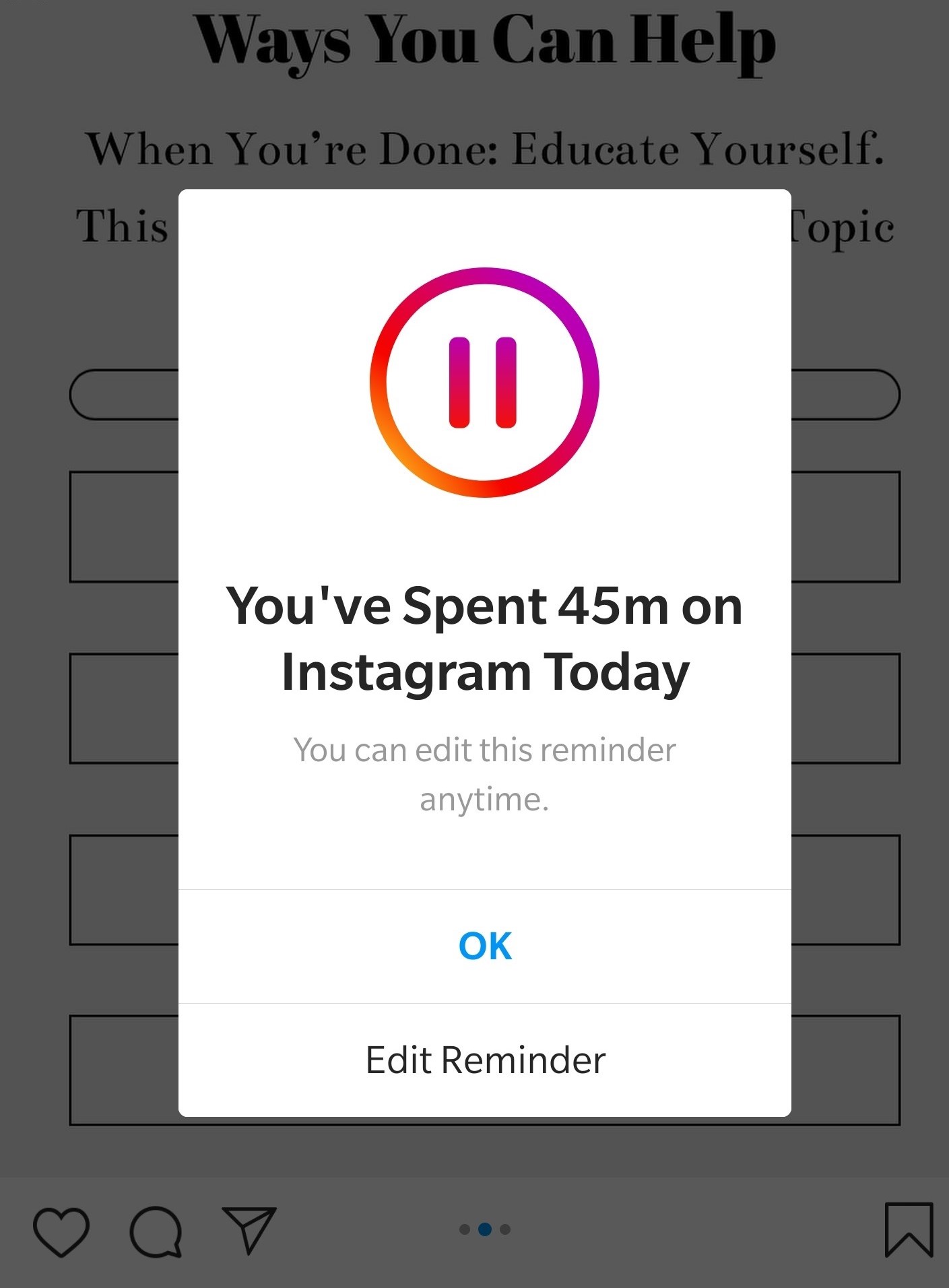5 Ways to Prevent Information Burnout While Keeping Up with Current Events
In the month of April, I uninstalled Instagram about 5 times. I wanted to log on and see what my friends and family were up to, but all anyone was talking about was the pandemic: How many cases there were, if people could pass it on to their pets, memes about how horrible staying at home was. On one hand, I liked having all this information because it got me up to speed, but on the other, I was an absolute mess.
It was an information overload. And man, it was freaking me out. I just wanted to crawl into a hole and hide out until it was over. Hide until everyone had said what they needed to say, and my feed finally went back to normal. But that didn’t happen, so I would just delete my app when I felt overwhelmed. And then install it again a day or two later. And then uninstall it.
You get the picture.
Just when things started to slow down, America was thrown into a period of unrest. It is a sobering reminder of the systemic issues that are deeply rooted in our society—a reminder of all the work we have to do as people of the United States. People went to the internet to raise awareness and let their voice be heard. I saw post after post of ways I could get involved. I’ve poured hours into research, sent petitions, and shared what I’ve learned. But I started to feel overwhelmed again.
I knew I couldn’t keep hiding when I felt like this; this was too important. Which brings us to this question:
How can you stay informed without losing your mind?
Here are 5 things to try if keeping up with the news is starting to drain you:
1. Don’t Reach for Your Phone First Thing in the Morning
Since I started working from home, I have developed this awful habit of grabbing my phone when I first wake up. It starts off with looking at my on-screen notifications, and then suddenly it’s been 45 minutes and I’m still in bed. It’s not a good feeling.
There are many ways to have a good morning; some people have very structured routines, while others have a little more flexibility. The one thing most good routines have in common, though: time away from your phone.
Consider making it a goal to wait an hour after you wake up before you look at your phone. Use that hour for yourself: journal, read a book, meditate, or drink your coffee outside in the cool of the morning. After you’ve given yourself a slow, mindful morning, you can reach for your phone and see what’s happening in the world.

2. Get News from Reputable Sources
Biased language runs rampant in our media. Which makes sense—the more emotionally charged and entertaining the piece is, the more readers will tune in. Issues with this come to light when that charged language or vague wording confuses the readers or makes them think something is fact when there is no substantial proof.
Additionally, I have seen media bias create panic in readers who see the post and fervently share it to spread the word. I have felt the panic myself, which is why I often feel calmer when I read pieces with minimal bias.
Now, it’s almost impossible to deliver news that is completely bias-free, but there are a few media outlets who seem to be better at it than others. With this in mind, take some time to learn about bias so that you can spot it on your own, and search for objective news stories that can give you a little more peace of mind.
3. Limit Your On-Screen Time
Everyone has different opinions on screen time, but if you find yourself panicky or unhappy after spending a lot of time on your phone or computer, it may be time to consider limiting how often you stare at your screen. Thankfully, there are plenty of resources you can use to help you moderate your time online.
Some apps have timers that go off after you’ve been on the app for a set amount of time. I now have a timer set on Instagram (instead of uninstalling and reinstalling) to remind me when I’ve spent 45 minutes on the app. This helps prevent me from experiencing that information overload, and I manage my time better. If this is something that you think would help you, there are plenty of other apps for apple and android phones to help you get your time back.

If you find yourself wasting time on your computer, consider installing applications or plugins to minimize distractions or limit your time on certain sites. You can also organize your computer screen to get rid of clutter. As someone who always has about a million tabs open, the set aside tabs feature on my laptop has saved my life. It lets me clear the clutter for my main window and focus on one task at a time. I can also use this to set aside articles to read later if I’ve exceeded my allotted screen time.
4. Do Some Self-Reflection after Catching Up on the News
When reading the news, it’s easy to get trapped in the feeling that nothing is going right in the world. Pessimism sucks us into its dark vortex as we downward spiral into cynicism. Sometimes all it takes is writing a small list of good things you may have read about, or if it feels like there isn’t one, then write two things you’re thankful for. When I get overwhelmed with the news, I remind myself of these two things:
- I am privileged to own a cell phone and have internet connection that allows me to stay informed.
- I also have the privilege to turn this off whenever I want. Not everyone gets that because they are living through what I’m reading about.
Another possible tactic for tackling that crappy feeling you get when you read current events is to set aside time to worry about those things. Grab a pen and paper, go to a quiet spot, set a timer, and dump out everything you’re concerned about. The most important thing about this is that the fretting and fussing stop when the timer stops.
5. Move Your Body Afterwards
Change your scenery to help remind yourself that you have other things to do today. Go for a walk, fold your laundry, do the dishes—something that tells your brain that you have moved on to another task. That life is still moving, even if it feels like the world is ending.
Physical activity not only benefits your body, but also has a plethora of mental health benefits. After you’ve done something mentally taxing, do your mind and body a favor and move—even if it’s just a short walk or a three minute dance session to your favorite song. It will help relieve stress, boost your mood, and give you confidence for whatever the rest of your day entails.
Final Thoughts
We have a responsibility to stay informed and get involved whenever we can. Negative feelings that result from watching the news is not an excuse to live under a rock, shielded from the current going-ons of the world. At the same time, we can still find a balance between keeping up and preserving our sanity.
These suggestions listed are just that: suggestions. In the end, you have to do what’s best for you. Take care of yourself, stay informed, and be a light to others around you.
How are you going to do that today?


